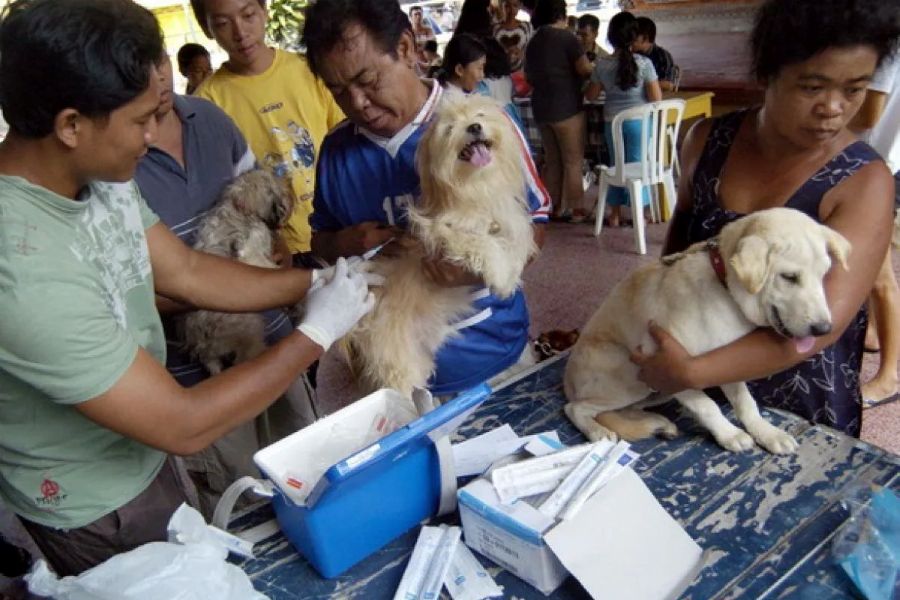Bali remains on high alert against rabies, with the provincial government ramping up vaccination efforts in Jembrana Regency, the westernmost district of the island. The region has reported some of the highest cases of rabies-transmitting animal bites in Bali, with dogs and cats being the primary carriers.
Data from the Bali Provincial Government shows that from January to September 2025, Jembrana averaged 550 dog bite cases per month, of which 96 were confirmed rabies infections. Out of 51 villages and sub-districts in Jembrana, 49 remain classified as red zones for rabies.
Bali Provincial Secretary Dewa Made Indra urged residents to immediately seek medical treatment after being bitten by rabies-transmitting animals such as dogs, cats, or monkeys.
“The key is to immediately go to the nearest health facility. If this awareness is well established, there will be no more deaths caused by rabies,” Dewa Indra said during World Rabies Day commemorations in Jembrana on September 29, 2025, as quoted by Media Indonesia.
He also warned about the speed of rabies transmission, which depends on the bite location. “The higher the bite—such as on the thigh, waist, arm, or face—the faster the virus enters the brain and accelerates death. Only medical professionals can determine whether someone is infected with rabies,” he stressed.
Vaccination Coverage Still Too Low
Despite government efforts, rabies vaccination coverage in Jembrana remains lower compared to other districts in Bali. According to local authorities, only 40.89% of Jembrana’s 41,668 dogs had been vaccinated as of September 23, 2025.
“From 51 villages in Jembrana, 35 are still classified as red zones. Vaccination coverage remains far from optimal. We need proper planning, consistent vaccine supply, and above all, strong commitment from field officers to complete the program,” said Jembrana Deputy Regent I Gede Ngurah Patriana Krisna, as reported by Kompas.
The deputy regent emphasized that without higher coverage, Jembrana will continue to face high rabies risks.
Government and Community Response
To combat the threat, the Bali Provincial Government, in collaboration with the Agriculture and Food Security Service and the Indonesian Veterinary Association (PDHI), has accelerated mass rabies vaccination campaigns.
“Jembrana must move faster in arranging vaccination schedules, especially in red zones. The provincial government is ready to support with manpower and vaccine supply,” said Dewa Indra.
He added that consistent measures could eventually help Jembrana escape red-zone status. “Once Jembrana is rabies-free, we can propose to the Ministry of Agriculture that Bali no longer be classified as a red-zone region,” he explained.
Plt. Head of Jembrana’s Agriculture and Food Security Service, I Gusti Putu Mertadana, echoed the call for collective responsibility.
“Rabies prevention must be a shared responsibility between the government, private sector, and community organizations. Through mass vaccination, we aim to significantly reduce rabies cases in Jembrana,” he said.
Dewa Indra admitted that rabies-related deaths and animal bites continue to occur in Jembrana, underscoring the urgency of vaccination.
The provincial government hopes that with sustained efforts, Bali can gradually shed its red-zone rabies status and protect both locals and tourists.
Source: Media Indonesia, Kompas
Photo Credit: ANTARA Photo/Nyoman Budhiana

